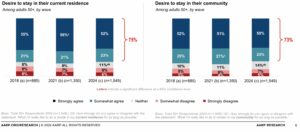A Colorado federal judge last Wednesday certified a class of stockholders in a securities suit against InnovAge (https://www.innovage.com/) alleging the senior health care company made misleading statements in its initial public offering that later caused stock prices to fall post a government audit that exposed false statements.
Three public pension funds based in Texas and Indiana have accused InnovAge Holding Corp. and parties behind its March 2021 IPO of falsely claiming its business providing seniors with comprehensive health care grew because of an innovative business model – essentially a PACE model. A CMS audit and media reporting demonstrated that growth came at the expense of senior citizens – the false claims in the suit
Back in May of 2016, InnovAge became the first Program of All-Inclusive Care for the Elderly (“PACE”) organization to move to for profit-status. Former CEO Maureen Hewitt led an aggressive lobbying campaign to remake the regional nonprofit into the first national for-profit PACE Provider.
The Program of All-Inclusive Care for the Elderly (PACE) is a Medicare and Medicaid program that helps people meet their health care needs in the community instead of going to a nursing home or other care facility. PACE includes medications commonly covered under Medicare Part D. PACE | Medicare
Here are some of the services PACE may cover:
- Adult day primary care (including doctor and recreational therapy nursing services)
- Dentistry
- Emergency services
- Home care
- Hospital care
- Laboratory/x-ray services
- Meals
- Nursing home care
- Nutritional counseling
- Occupational therapy
- Physical therapy
- Preventive care
- Social work counseling
- Transportation to the PACE center for activities or medical appointments
In its IPO, InnovAge directors including Jeb Bush and Edward Kennedy Jr. as well as some largest investment banks, InnovAge claimed that its rapid growth was due to its provision of comprehensive care for at-risk seniors Unfortunately, during this growth phases, InnovAge was consistently found failing to provide timely specialist care and adequate home health services.
In September 2021, CMS notified InnovAge that the government was suspending enrollment at InnovAge’s Sacramento, California center after an audit of the facility found that InnovAge “substantially failed” to “provide to its participants medically necessary items and services that are covered PACE services.” InnovAge also revealed in 2021 that CMS and the state of Colorado had decided to suspend enrollment at InnovAge’s Colorado facilities.
In the first six months of 2022, CMS suspended enrollment in existing centers or canceled agreements for new centers in Florida, Indiana, New Mexico and San Bernadino, California.
A few months after CMS and state regulators lifted sanctions against InnovAge, the company allegedly fired large portions of staff in its compliance, quality, and nursing departments. The company also began cancelling thousands of referrals for patients to see outside specialists plus cut back on required programs, such as in-home care, for its subscribers. InnovAge: After CMS Lifted Sanctions, Company Cut Large Portions of Compliance and Quality Departments; Former Employees Say Cuts Will Only Exacerbate Ongoing Patient Harm; Company Already Out of Compliance with Multiple Regulations, Increasing Likelihood of Additional Sanctions – The Capitol Forum
In September of last year (2024) and amended complaint brought against InnovAge, its board, the private equity firms that funded the IPO and the deal’s underwriters argued that InnovAge’s stock price for the IPO was set based on misleading statements about the company’s growth. Later, post those statements, prices plummeted after the federal government suspended enrollment at one of the company’s centers and indicated that inadequate or non-existent care was occurring.
Among many allegations dating back to litigation started by investors against the InnovAge board, is a core concept often heard in litigation – profit before patients. In this case, a chief complaint is that InnovAge enrolled more patients than it could care for via the staff resources it had. For example, at each of their centers in New Mexico, California, and Colorado, employees described excessively high caseloads for each worker. The business goal was to enroll as many patients as possible in order to receive government funding, creating organizational dysfunction that resulted in delays in appointments and care that could stretch years.
What is next will be interesting to watch. Litigation that involves staffing or alleged lacks thereof, and patient harm, is on the rise. The unique element of this case is that it involves, as of now, no False Claims Act violation despite the probability that the same exists. It is a False Claims Act violation by definition to represent the ability of a provider to provide services to patients, to have taken money for the same, and in turn, not provided the service or care required. This is exactly the core allegation against InnovAge. More on staffing litigation is available here: https://rhislop3.com/snfs-and-others-a-not-good-staffing-litigation-trend-to-watch/
Even with solid senior adult demographic growth and an increasing need for services due to age and concomitant comorbidities, most seniors prefer to attain services in their home, in their community. This is perhaps why in some cases, PACE growth has been solid, though not as dramatic as portrayed by InnovAge.
